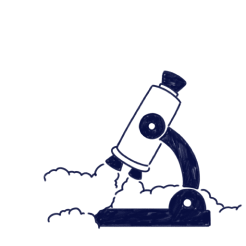
The right electronic Quality Management System (eQMS) can help strengthen your compliance processes and build a culture of quality within your organization. Discover the eight best quality management software and learn how to choose the right one for your life sciences company.
Are you dreaming of an efficient, paperless system and looking to discover the best quality management software on the market?
If you're a life sciences company looking to scale beyond basic compliance and quality management, your current QMS might not cut it anymore. With the foundations of your QMS already in place, you need a sophisticated eQMS that goes beyond spreadsheets or tools like SharePoint and Google Docs, offering advanced features without unnecessary complexity or high costs.
You're likely frustrated by fragmented systems and juggling multiple tools for different processes, and you're ready for a solution that unifies all QMS processes in one platform. Even if your QMS is mature and robust, it may be highly inefficient, driving your search for a better alternative.
No matter where you are in your journey, choosing the right quality management system (QMS) software could be one of the most important decisions your company will ever make.
To help you navigate these choices, we’ve prepared this guide to explore the best quality management software options, ensuring you make the best decision for your business.
What is eQMS software?
Before we dive into the top QMS software, let’s first clarify the many overlapping terms—eQMS, QMS, QMS software, quality management solutions, and more—that all seem to blend together.
A Quality Management System (QMS) is a structured framework that helps organizations manage their documentation and processes to ensure the quality of their products and services.
An eQMS (electronic Quality Management System) is the digital version of a QMS, offering a modern, software-based solution to managing these quality processes. You may come across terms like quality management system software, or simply quality management software, QMS software, or QMS solution, all of which refer to eQMS—a digital tool that streamlines and automates quality management activities.

In short, if "solution" or "software" is mentioned, it’s referring to an eQMS, the digital approach to managing quality.
An eQMS is most commonly deployed as a cloud-based system, giving authorized users the ability to access it anytime, anywhere, from approved devices with an internet connection. This flexibility is a game-changer for life sciences companies, that use eQMS solutions to streamline essential quality processes like document control, change control, CAPA, non-conformance management, and training—all managed in one central hub.
But it doesn’t stop there. A quality management system software also plays a crucial role in ensuring regulatory compliance. By monitoring adherence to industry standards and guidelines, it helps companies proactively spot and address potential issues before they become bigger problems.

Find your perfect eQMS match by asking the right questions and listening to those who’ve been in your shoes.

Recommended learning: Unlock the full potential of your operations by transitioning from a paper-based QMS to an eQMS—discover the benefits that await you!
The benefits of an eQMS: How eQMS comes to the rescue of quality management
To fully appreciate the benefits of an eQMS, it’s important to understand how quality management systems (QMS) have traditionally been managed.
The conventional approach to managing a QMS relies on paper, meaning physical documents are created and stored. However, "paper-based" can also refer to using digital tools like Excel, Google Docs, SharePoint, or Dropbox, which function as digital filing cabinets.
While many life sciences companies are adopting quality management software, some still use physical documents or hybrid systems combining digital and paper formats. These methods require time-consuming manual updates and prevent teams from maintaining a single source of truth.
Managing paper documents is expensive, with costs adding up significantly per employee each year. Use our ROI calculator to see how much you're spending and how much you could save with an eQMS. Beyond the financial burden, paper records are prone to human error. Issues like inconsistent data capture, missing information, or incorrect transcription can complicate tech transfers, batch production, and more.
So, why do some life sciences companies still rely on paper?
Several factors explain the persistence of paper in life sciences quality management. Take a look at the infographic below to find out why.

While these worries and inconveniences are valid now, just think of the long-term benefits of embracing digital transformation and adopting an eQMS:
- Enhanced data integrity and real-time visibility across operations
- Centralized records and easy retrieval of information for internal and external audits.
- Streamlined compliance processes and reduced risk of regulatory violations
- Improved collaboration and knowledge sharing across departments
- Faster product releases and reduced time-to-market
- More efficient resource allocation and cost savings
- Better trend analysis leading to continuous improvement
- Increased agility in responding to changes and challenges
- Reduced paper waste and support for environmentally friendly practices
- Improved decision-making with real-time data insights
- Enhanced traceability and accountability
- Elevated employee engagement and shared commitment to quality
- Scalability for future growth
- Reduced administrative burden by minimizing manual data entry and paperwork
Although the initial investment in digital systems may seem daunting, the potential for improved efficiency, quality, and compliance far outweighs the short-term challenges. You simply can’t achieve these benefits with a paper QMS.
As the life sciences industry continues to evolve, those who embrace digital transformation will be better positioned to meet future demands and maintain a competitive edge. The question isn't whether to go digital, but how quickly and effectively companies can make the transition to reap these benefits.
Recommended learning: Is SharePoint your accidental eQMS? The hidden costs of not having an eQMS are scarier than you might think. Discover them here!
Best quality management software for 2025
Finding the ideal quality management software for your organization can feel overwhelming, especially with so many options competing for your attention. Each solution promises to streamline compliance and drive efficiency, but how do you know which one is truly the right fit?
Ultimately, your QMS software should align with your organization’s growth stage, budget, and structure. The right solution can not only accelerate implementation but also enhance user adoption and speed up your time to value.
That’s why we’ve compiled a list of the 8 best quality management software for the life sciences industry. Based on the expertise of our quality specialists, feedback from customers and partners, and extensive research our list will help you discover the quality compliance software that fits your needs.
- Scilife
- Greenlight guru
- Mastercontrol
- TrackWise
- Dot Compliance
- Simpler QMS
- ETQ
- Qualio
If you're in the pharmaceutical industry and want to see how an eQMS can help tackle common challenges, check out our QMS in pharma guide.
Scilife
Turn complexity into clarity—Scilife simplifies compliance and quality management for life sciences.
Scilife is a comprehensive 21 CFR 11 cloud-based quality management system software tailored for the life sciences industry. It offers an integrated solution for streamlining quality processes, ensuring regulatory compliance, and transforming quality into a competitive advantage. All Scilife tools connect seamlessly, for maximum workflow efficiency and traceability.
Features and functionality:
Scilife provides a range of tools tailored for pharmaceutical, biotech GMP compliance, and other life sciences industries such as medical devices and IVD. The solution includes document management, training management, quality management (CAPAs, deviations, nonconformities), change control, risk assessment, audit management, KPI tracking, and more. It also features a unique Print and Reconciliation module for controlled printing.
What sets it apart:
Scilife's life sciences industry-specific focus, user-friendly interface, and excellent customer support distinguish it in the market. Its continuous improvement based on customer feedback further enhances its appeal to life sciences organizations. What truly sets Scilife apart is its Smart Quality approach, which goes beyond compliance to drive innovation and operational excellence. This unique concept empowers organizations to proactively manage quality, turning it into a competitive advantage. This has led Scilife to become a rapidly growing solution, now serving customers worldwide. Passionate about advancing life sciences beyond compliance, Scilife offers not just a high-quality product but also the support to help you build a quality culture of excellence.
Pros:
-
Complete traceability and compliance: Scilife provides full traceability across your workflow, ensuring audit readiness with comprehensive reporting tools that maintain compliance with industry standards.
-
Document management: Scilife offers a centralized system with automated version control, simplifying document management and compliance. Seamless integration with Office tools like Word and Excel enhances user experience.
-
Corrective & Preventive KPI (AI): Use AI to identify improvement areas in your quality management. Scilife analyzes data in real-time, helping you proactively address issues and implement preventive measures to reduce risks.
-
Real-time insights: Track pending tasks and key metrics with Scilife's dashboard, offering instant visibility into approvals, audits, and compliance.
-
Efficient onboarding: A dedicated Onboarding Project Manager ensures smooth implementation through guidance, regular check-ins, and a streamlined process.
-
Easy data import: Our team assists with importing data, ensuring accuracy through verification steps for a seamless transition.
-
User-friendly interface: Scilife’s intuitive, browser-based platform is easy to use, with a minimal learning curve, allowing access from any device.
Cons:
- Updates and improvements: To keep up with changing regulations and industry standards, as well as to enhance user experience, Scilife regularly releases updates that may require additional training for users and adaptation.
- Pricing tiers: Scilife offers four tailored packages for life sciences companies—Free plan, Essential, Core, and Core+—but does not allow the flexibility for users to pick and choose specific modules or features.
- Limited integration: Scilife integrates with tools like Okta, Azure AD, Navision DB, Power BI, and Tableau but is not compatible with Jira or Salesforce. However, the Scilife team is open to discussing and exploring custom integration options based on specific customer needs.
Ideal for:
Scilife is suited for life sciences companies of all shapes and sizes, including pharmaceutical, biotechnology, and medical device manufacturers looking to scale, digitalize, and streamline their quality management processes while ensuring regulatory compliance.
See Scilife’s Smart QMS software in action!
Discover how we can help you ensure compliance, cut down on manual tasks, and boost your productivity.

Greenlight Guru
Greenlight Guru is a purpose-built eQMS that molds to the strict standards of medical devices.
Greenlight Guru is a cloud-based QMS platform tailored specifically to the MedTech industry. Designed with medical device companies in mind, it offers specialized features such as design control and clinical trial management, ensuring full compliance with the unique regulatory requirements of the medical device sector.
Features and functionality:
Greenlight Guru includes comprehensive QMS modules such as document management, training, and risk management, alongside specialized tools for design control and clinical trials. The platform is also equipped with a risk-based computer system validation package.
What sets it apart:
Greenlight Guru’s specialized focus on MedTech and its native traceability matrix generation tool makes it particularly valuable for companies in the medical device industry. Its well-structured workflows further enhance its appeal.
Pros:
- Intuitive interface: The user-friendly layout provides easy access to key functions like change orders, complaints, and nonconformities directly from the home page. It is straightforward to use and allows for enough flexibility to make the QMS fit with existing company processes.
- Customer support: Greenlight Guru's support team is great, with quick response times and active involvement in discussions about new features. Their in-house experts are responsive and dedicated to finding solutions, ensuring that your organization's needs are met effectively.
- Built-in features for medical devices: Includes specialized features for medical devices, such as design controls, risk matrix, design reviews, Design History File, and the ability to generate Device Master Records and Device History Records with strong traceability.
Cons:
- MedTech-only focus: This eQMS is specifically designed for medical device companies, making it less suitable for other areas of life sciences.
- Limited features: Customers have reported missing critical features, such as the lack of a training matrix, mobile functionality, and user-customizable features, along with the absence of quizzes within the training environment. Additionally, manual tracking in spreadsheets for training matrices is seen as inadequate for fast-growing companies.
- Steep learning curve: Many users have found that extensive training is required to onboard new users effectively. The initial experience can be overwhelming, and the tool demands a significant amount of time and practice to master its navigation.
- Poor search functionality: The search bar often fails to deliver relevant results, even when the exact document title or part number is entered. Users frequently need to navigate to the documents section directly to find what they need, as the search function is inconsistent and counterintuitive.
Ideal for:
MedTech companies seeking a user-friendly, specialized QMS with strong support for design control and risk management.

MasterControl
An extensive eQMS for large-scale operations, though lacking specialization in life sciences.
MasterControl is a QMS software catering to large enterprises across various regulated industries, including pharmaceuticals, medical devices, and food and beverage. It’s designed to manage quality processes with a high level of customization and scalability. However, its industry-agnostic approach may not fully address the specific needs of life sciences companies.
Features and functionality:
MasterControl manages core quality processes such as document control, training, nonconformance management, and more, with strong compliance support for FDA 21 CFR Part 11, ISO standards, and EU MDR.
What sets it apart:
MasterControl’s robust document management features and easy integration with various enterprise systems, such as ERP and CRM, make it a powerful tool for large organizations. Its automation of GAMP 5 processes further distinguishes it from competitors.
Pros:
- Highly scalable: Offers a flexible and scalable system, particularly strong in document management and quality workflow collaboration, allowing QA staff to manage processes efficiently and incorporate scalable processes into various phases.
- Strong document management: Known for robust document management features, it provides excellent traceability of processes and documents, facilitating easy investigations and offering a centralized location for documents, training, and quality event management with integrated processes.
- Integration capabilities: MasterControl integrates easily with other software applications like ERP, CRM, and MES, with pricing tiered based on features, users, and additional services.
Cons:
- Poor user experience: Many users have reported that the system is not intuitive, with a deteriorating UI/UX, messy reporting, limited features, and inflexible design.
- Feature limitations: The product has gaps and lacks essential reporting features, customizable workflows, conditional routing for FBS forms, and open-ended assessments and reviews in the training module. Out-of-the-box configurations require major updates for better flexibility and integration with other software.
- High cost: The software is considered expensive and inflexible, especially for small to mid-sized manufacturing companies.
- Challenging onboarding: Many users have reported that onboarding can be challenging and overwhelming, requiring detailed setup and considerable trial and error to fully utilize all features effectively.
Ideal for:
Large enterprises that require a highly customizable, complex, and scalable QMS with strong integration and automation capabilities. However, its extensive features might be more than what most companies require.

TrackWise
A robust QMS solution, best suited for large enterprises, but potentially excessive for smaller needs.
TrackWise provides both on-premise and cloud-based eQMS solutions, designed for industries requiring advanced, customizable quality management systems. With AI-powered features and the flexibility to support complex organizational structures, it’s well-suited for companies managing multiple operations and seeking a scalable solution to match their resources.
Features and functionality:
TrackWise centralizes all QMS processes, supporting compliance with FDA regulations, EU Annex 11, GxP, ISO standards, and more. The software offers a computer system validation package with each release, ensuring compliance with industry regulations.
What sets it apart:
The high level of customizability and integration with other business systems, such as Salesforce, set TrackWise apart. Its AI-powered features also enhance proactive quality management, making it a cutting-edge solution.
Pros:
- User-friendly interface: TrackWise is praised for its intuitive and easy-to-use interface, making it accessible for users with varying levels of technical expertise.
- Customization options and integration: The software provides extensive customization options, enabling organizations to tailor the system to their unique needs and workflows. It integrates seamlessly into complex enterprise software ecosystems, offering real-time connectivity with ERP, CRM, LIMS, and MES applications.
- Comprehensive tracking: TrackWise excels in tracking various quality management processes, including CAPAs, deviations, and change controls, providing a centralized platform for quality management.
Cons:
- Performance issues: Some users report occasional slowdowns and performance issues with modules not reacting as quickly as users would expect, especially when dealing with large amounts of data or complex queries. Additionally, some users report that certain modules or features don't function as expected or have limitations.
- Learning difficulty: While generally user-friendly, some reviewers mention that there is a learning curve, particularly for advanced features and customizations. The system often requires intensive training for users to become proficient.
- Search functionality issues: Some users find it difficult to search for specific fields when creating queries.
- High cost: Some organizations find the pricing to be on the higher side, especially for smaller businesses or those with limited budgets.
Ideal for:
Large organizations needing a highly configurable QMS with AI capabilities and strong integration with other enterprise systems, though its complexity may be overkill for many businesses.

Dot Compliance
Dot compliance is a great solution for storing and creating documentation, Traditionally Focused on U.S. market needs.
Dot Compliance offers a cloud-based eQMS built on the Salesforce platform, providing interconnected QMS modules for seamless management across various quality processes. The platform also includes an AI assistant for enhanced data insights.
Features and functionality:
Dot Compliance provides comprehensive features like document management, integration into Microsoft Office, and compliance with FDA regulations, ISO standards, and more. The software also ensures GAMP 5 compliance with a fully executed validation package.
What sets it apart:
Built on the Salesforce platform, Dot Compliance allows for robust integration with other Salesforce tools, making it a scalable solution for organizations already using Salesforce. Its AI assistant offers advanced data insights, helping users make informed decisions.
Pros:
- User-friendly interface: Dot Compliance QMS is applauded for its intuitive and easy-to-use interface. Users find it simple to navigate and operate, which contributes to a positive user experience.
- Comprehensive document management: The software excels in document control and management capabilities, allowing users to efficiently organize, store, and retrieve documents, streamlining compliance processes.
- Excellent customer support: The customer support team receives high marks for their responsiveness and helpfulness. Users report quick resolution of issues and appreciate the support provided during implementation and ongoing use.
Cons:
- Learning curve: There is a learning curve associated with fully utilizing all features. While the interface is user-friendly, mastering all functionalities may take time for new users.
- Limited reporting capabilities: Some users have reported that the system's reporting features could benefit from improvements, such as offering more advanced options and greater flexibility for generating custom reports.
- Integration challenges: Some users report difficulties in integrating Dot Compliance QMS with other software systems. This can potentially limit the seamless flow of data between different tools used in an organization.
- Difficult installation: The initial setup of Dot Compliance QMS can be complex and time-consuming for some companies. While the software is marketed as a ready-to-use solution, some companies have found that the actual implementation requires significant effort and coordination among team members.
Ideal for:
Growing life sciences companies already using Salesforce, looking for a scalable QMS with advanced data insights.
Recommended learning: Not happy with your current eQMS provider? No problem! Discover how to transition seamlessly from one eQMS to another.

Simpler QMS
Comprehensive QMS solution with a great support team.
SimplerQMS is a cloud-based quality management system software specifically tailored for life sciences companies. It offers a comprehensive suite of QMS functionalities, ensuring seamless integration with the Microsoft suite, and making it a familiar and efficient tool for document management and collaboration.
Features and functionality:
SimplerQMS supports all core QMS processes, including document control, training management, CAPA, audit management, non-conformance management, design control, and more.
What sets it apart:
The seamless integration with Microsoft Office tools allows users to edit and collaborate on documents directly within the software.
Pros:
- Strong customer support: SimplerQMS provides excellent customer support, with quick response times, hands-on training, and proactive assistance in system implementation and integration.
- Cost-effective solution: Offers all-inclusive pricing with a great price-to-performance ratio.
- Comprehensive feature set: provides a complete and flexible feature set, making quality management more efficient. Its user-friendly interface, easy setup, and ability to track changes help streamline processes while adapting to evolving business needs and regulations.
Cons:
- Performance and connectivity issues: There are occasional short connection problems that can prevent the use of the system. As the software is relatively new, some bugs have been encountered, and at times it runs a bit slowly, potentially due to server issues.
- Limited integration: Some users mention limited integration options with other software systems and non-Microsoft applications, which might be a drawback for organizations using other productivity tools.
- Mac User interface: There is no Apple-based web so Mac user interface is considered inferior to Windows, with an old-fashioned look that requires adjustment, though functionality is present.
- Learning curve: Many users have noted that mastering the software can be time-consuming and requires a significant period of hands-on experience.
Ideal for:
Life sciences companies looking for a robust, validated QMS with deep Microsoft Office integration and all-inclusive pricing.

ETQ
Multi-industry eQMS that specializes in regulated environments.
ETQ Reliance is a comprehensive eQMS designed to help organizations streamline their quality, EHS, and compliance processes. Its flexible, configurable platform adapts to meet diverse regulatory requirements, though it's not specifically tailored for the unique needs of life sciences.
Features and functionality:
ETQ Reliance provides a wide range of modules including document control, audits, training, CAPA, supplier management, and risk management. The software also offers advanced reporting and analytics capabilities.
What sets it apart:
ETQ Reliance stands out for its flexibility and configurability. Users can customize workflows, forms, and processes without coding, allowing for a tailored solution that fits specific organizational needs.
Pros:
- User-friendly interface: Many reviewers find the software intuitive and easy to use, even for non-technical users, with smooth transitions between workflows.
- Highly configurable: Users appreciate the ability to customize the system to match specific processes and requirements, including document and workflow configurations. It remains flexible with an out-of-the-box setup and supports expansion through a well-understood scripting language.
- Robust reporting: The system offers powerful reporting and analytics tools, providing valuable insights and real-time tracking of quality metrics to help data-driven decision-making.
Cons:
- Inability to include graphics and diagrams in Investigations: The platform does not support including or pasting graphics/pictures directly within investigations, requiring the use of separate documents for visuals and attaching them in ETQ, which leads to duplication of work. A few reviewers report occasional slowdowns or glitches, especially when handling large amounts of data.
- Poor Training Management module: Many users have complained that the module is rigid and cumbersome, requiring manual processes for downloading records, cross-checking training plans, and managing document revisions. It lacks automatic reassignment of training and is not user-friendly.
- Limited integration: The system has limited integration with other software tools, making it difficult to communicate with platforms like Google Docs and Sheets, which can be a major issue for some companies.
- Lack of dedicated training environment: There is no separate environment specifically for employee training, which is distinct from the development system. This lack of a dedicated training space creates challenges in managing and facilitating effective training.
Ideal for:
ETQ Reliance is well-suited for medium to large enterprises across various industries, particularly those in highly regulated sectors such as manufacturing, healthcare, and aerospace. It's especially beneficial for organizations looking for a highly customizable QMS solution with robust reporting capabilities.

Qualio
Good QMS, but would need more elements added to get a top score.
Qualio is a cloud-based eQMS platform designed for growing life sciences companies, particularly in the medical devices, pharmaceuticals, and biotechnology sectors. It emphasizes ease of use and efficiency, making it ideal for start-ups and small-sized companies.
Features and functionality:
Qualio offers core QMS functionalities, including document management, risk management, and training management. The software ensures compliance with various regulatory requirements such as FDA 21 CFR Part 11, ISO 13485:2016, and GxP.
What sets it apart:
Qualio is known for its streamlined implementation process and customer support. While it integrates with various popular applications, it lacks direct integration with Microsoft Office, which could be a limitation for some users.
Pros:
- Ease of document management: Users appreciate the user-friendly interface that simplifies document creation and management, with features like a Change Control system that functions similarly to a version control system for documents.
- Collaborative platform: Qualio facilitates team collaboration, allowing the entire team to share collective knowledge easily.
- Streamlined implementation: The software is known for its efficient setup process, making it easier for organizations to get started.
Cons:
- Basic user interface: The platform’s interface is not very mobile-friendly. The dashboard could be more visually appealing, and some users find the overall logic and navigation of the software less intuitive.
- Lacks Microsoft Office integration: While the document editor is functional, it lacks some of the advanced formatting and editing capabilities found in more robust word processing software. It does not currently have track changes for editing. Many users have experienced formatting issues when working with older versions of documents.
- Reporting functionality: The reporting functionality in Qualio is a notable limitation. While the software performs well in document management and compliance, its reporting tools are insufficient for providing deep insights into quality management processes. An upgrade in this area is necessary to better analyze trends and execute strategic quality initiatives effectively.
- Missing features and elements: Many users report a lack of overall functionality and technological options, including missing equipment modules, limited training assessment controls, inadequate deviation/investigation functionality, improper handling of unique IDs for forms, and review comments in procedures being placed at the end of sections, making it difficult for reviewers and authors to follow.
- Training and support: While many users praise Qualio's customer support, concerns include a steep learning curve for new users requiring significant training, and limited training resources, with some users feeling that more comprehensive materials or tutorials would be beneficial.
Ideal for:
Start-ups and small-sized life sciences companies seeking an easy-to-use QMS with essential document management features and a collaborative platform, but who may not require extensive document organization tools or advanced editing capabilities.
Make your case for eQMS with confidence
Quality professionals deserve the right tools. This template helps you build a strong business case for an eQMS, addressing inefficiencies, compliance risks, and scalability concerns—all while highlighting measurable ROI.
Key features to look for in an eQMS
As an eQMS provider for the life sciences industry, we at Scilife understand the crucial role of a QMS in ensuring compliance, streamlining processes, and upholding quality standards. Drawing on our extensive experience with life sciences companies of all shapes and sizes, we’ve pinpointed the essential eQMS software features that we’ve incorporated into our own solution that we know are crucial for success:
Document Control
A robust document control system is fundamental in the life sciences industry. It offers a centralized repository for quality documentation, ensuring easy access and a clear audit trail. With features like version control, approval workflows, and electronic signatures compliant with FDA 21 CFR Part 11, Scilife helps you streamline and automate operations while maintaining the integrity and traceability of all quality-related documents.
Change Control Management
Effective change management within an eQMS enables the seamless implementation of changes across the organization. It’s a vital feature that creates a clear path for requesting, approving, and implementing modifications, allowing your entire company to engage in the change process. Scilife's change control management software also integrates with Document Control and CAPAs, automatically triggering document updates as part of a change request to further streamline the process.
Training Management
A comprehensive training management module helps ensure a competent and compliant workforce by tracking employee training, managing training schedules, and maintaining training records. This feature is essential for regulatory compliance and maintaining high-quality standards. With eQMS software like Scilife, you’ll no longer need to chase employees for training reminders or keep track of retraining needs when updates are made.
Quality Event management
The Quality Event module enables efficient recording and management of all quality-related incidents and deviations. It facilitates the capture, investigation, and resolution of various events such as product complaints, nonconformities, and near-misses. The system provides a structured approach to event categorization, root cause analysis, and impact assessment. It streamlines the process of event tracking, ensuring timely closure and integration with other quality management processes.
Corrective and Preventive Actions (CAPA) Management
The CAPA module allows for the implementation of risk-based corrective and preventive action plans. It helps capture, investigate, and resolve deviations, complaints, and other quality events. The system streamlines the process of root cause analysis and the implementation of corrective actions.
With Scilife, you can program CAPA follow-up checks and connect modules to complete the improvement cycle. The Events Module identifies where issues arise, the Change Control Module manages changes in a controlled manner, and the CAPA Module implements necessary improvements. These integrated modules work together to ensure a seamless continuous improvement cycle.
Audit Management
Effective audit management capabilities facilitate both internal and external audits. It provides tools for planning, executing, and tracking audit activities, as well as managing audit findings and corrective actions. This feature is crucial for maintaining regulatory compliance and continuous improvement.
With Scilife, you can also manage supplier qualifications and regulate them before audits. The Audits module allows you to oversee supplier qualifications through a dedicated workflow and determine if an audit is necessary. This integration ensures you efficiently track suppliers, their qualifications, and the required audits.
Quality KPIs & Connected Metrics and Analytics
A connected ecosystem of metrics and analytics provides a single source of truth across various functions. It enables data aggregation, trending, configuration of key performance indicators (KPIs), and interactive analysis for strategic decision-making. This feature helps in making informed decisions based on real-time quality data.
With Scilife, you can monitor key aspects of quality and compliance, such as overdue items, training progress, and other critical quality processes, all in one place. This visibility helps you stay on top of your quality metrics and make well-informed decisions.
Equipment Management
Tracking and scheduling maintenance and calibration tasks can be complex, demanding careful planning and assignment. Specialized software for equipment management, like Scilife, streamlines this process, ensuring efficient oversight of all equipment-related activities. By simplifying scheduling, tracking, and documentation, Scilife helps you maintain safety standards and optimal performance. This ensures your equipment and instruments remain up-to-date and inspection-ready with minimal effort.
Risk Management
Risk management can be time-consuming and cumbersome, often leading to rushed assessments or avoidance. Effective risk management tools are essential for identifying, assessing, and mitigating risks in various processes and products, helping life sciences companies proactively address potential issues and maintain high-quality standards. Scilife simplifies this by breaking risk management into manageable steps, making it more user-friendly and accessible.

Recommended learning: Everything you need to take into account when choosing the right eQMS for you!
How to choose the best quality management software
Finding the best quality management software vendor starts by establishing what you need and what your long-term business objectives are.
Here are some common drivers for an eQMS procurement project:
- No visibility on why decisions have been made
- Reactive quality culture
- Mistakes that led to high expense or damaged reputation
- High cost of poor quality (COPQ)
- Failed audit(s)
- No formal management system
- High growth
- Bringing a new product to market
- Compliance silos
- Lack of engagement with the management system
- Outdated legacy systems
Clearly defining your needs is crucial for effectively comparing vendors to ensure they meet your requirements. If you have extensive compliance needs, we recommend creating a User Requirements Specification (URS) to centralize and document your operational requirements.
This can be sent to a future shortlist of vendors to ensure you get the best possible solution for your business.
In addition to core requirements, when selecting an eQMS, consider these critical factors that can significantly impact the effectiveness of the system:
- Regulatory compliance: Choose software that supports adherence to industry-specific standards, such as ISO 13485 and 21 CFR Part 11 e-signature requirements.
- Cloud-based access: Ensure the system offers cloud-based access to accommodate remote work and post-COVID needs.
- Computer System Validation (CSV): Opt for eQMS software that is fully validated and complies with validation requirements. Look for adherence to Good Automated Manufacturing Practice (GAMP) guidelines, such as ISPE GAMP 5.
- Flexible implementation process: Select software with a flexible implementation process that can be tailored to your company’s specific needs.
- QMS process support: Evaluate the software's support for all quality management processes. Consider the training options and support provided by the vendor, as thorough training and reliable support are crucial for maximizing the system’s capabilities and addressing any issues.
See Scilife’s Smart QMS software in action!
Discover how we can help you ensure compliance, cut down on manual tasks, and boost your productivity.
Get started today with the free version of Scilife—no strings attached.
It's essential to read reviews and case studies when evaluating a potential eQMS vendor. To help with your decision, we've provided a few insights and success stories from Scilife customers for you to explore. These customer stories showcase how Scilife has helped organizations streamline processes, ensure compliance, and achieve their quality management goals. We invite you to explore them to see how Scilife can meet your specific needs.
Conclusion: Make quality your competitive edge in 2024 with the best eQMS
In the fast-paced, competitive life sciences industry, precision and compliance are non-negotiable. Adopting a robust eQMS helps you streamline processes, reduce reliance on paper and spreadsheets, and connect your team to a single source of truth—all while ensuring regulatory compliance.
As your business grows, so will the complexity of your quality management needs. A flexible, cloud-based eQMS like Scilife scales with your operations, helping you maintain efficiency and avoid bottlenecks in your processes. Don’t settle for generic tools that may slow you down; choose a solution designed for your specific industry and goals.

When evaluating eQMS options, prioritize key factors such as user-friendliness, customization, and cost. Make sure the system offers strong customer support and regular updates to keep pace with evolving needs. With Scilife, you get all the essential eQMS features, plus the flexibility to grow with your team—ensuring seamless operations as you expand.
If you need help in making your business case for an eQMS, we’re here to help!
The right QMS is more than a document management tool—it’s a foundation for future growth and product excellence.
Unlock 80% more efficiency in quality management.
Book your 30-minute demo to explore how Scilife’s Smart QMS software can help.









